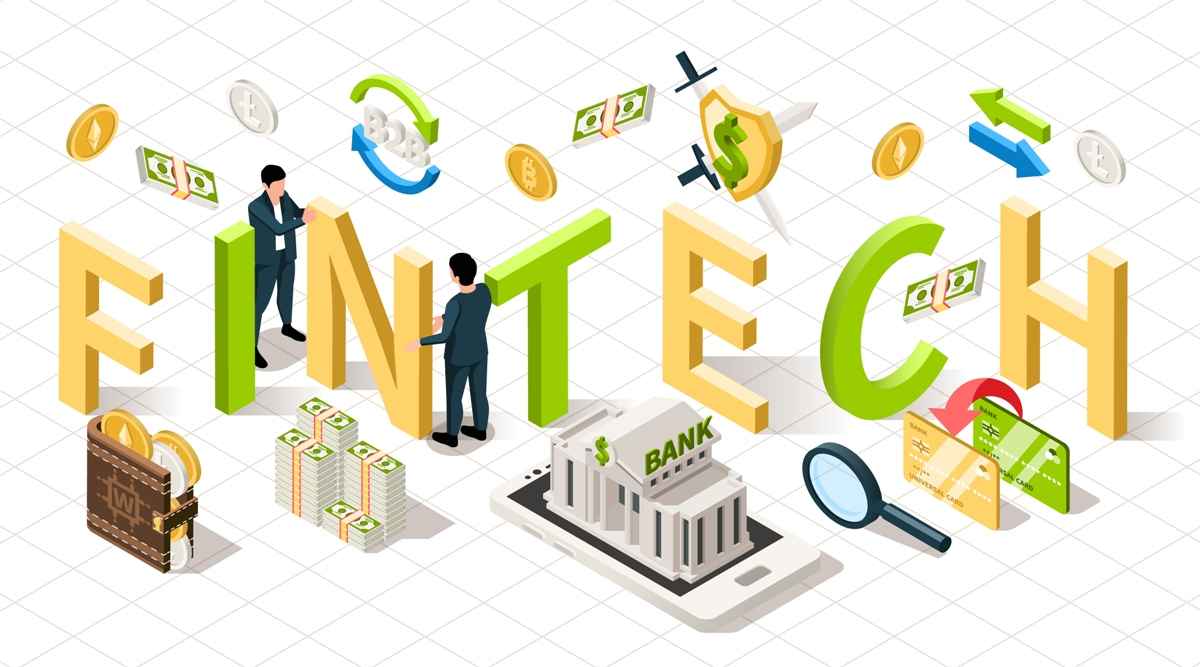Nowadays, more businesses require the appropriate set of digital tools to remain relevant in the highly competitive market. The quicker the businesses can develop technologies to cope with the increasing demand.
One specific set of tech tools that genuinely helps to be advanced for small businesses to connect with their customers is Fintech. Fintech is the key technology that helps small businesses get established, thrive, and scale.
Financial technology is responsible for the development of small businesses. Small businesses can successfully organize their finance too. Fintech helps small businesses with funding, money transfer, payment processing, and more.
Here, in this article, we will provide you with information that how Fintech can help small businesses to grow in 2024.
What is Fintech?
Fintech is a combination of two terms-financial and technology. Fintech refers to businesses that use technology to enhance financial services and processes. Fintech encompasses a rapidly growing industry that serves the interests of both industries and customers in multiple ways.
Fintech has endless applications from mobile banking to cryptocurrency, mobile insurance to investment apps, and so on. Fintech refers to software, algorithms, and applications for both mobile and desktop.
Fintech technology enables industries to deposit checks, pay bills, move money between accounts, etc.
Businesses depend upon Fintech for e-commencing, payment processes, and help with government assistance efforts such as the Payroll Protection Program.
Types of Fintech companies
Types of Fintech Companies-
Mobile banking and Neo banks:
Mobile banking is the primary focus of many financial technology companies. In this current era of personal banking, customers prefer to access their banking accounts. They want to access their accounts from their mobile devices.
Neo banks are digital banks without physical bank locations, serving customers in savings, payment services, and loans on digital interference.
Some examples of Neobanks or Fintech banks are Chime, Current, Aspiration, and Varo.
CryptocurrencyFintech:
Cryptocurrency and Blockchain intersect with Fintech in a variety of ways. For start-ups, various crypto platforms have emerged in current years that serve users in trading different kinds of cryptocurrencies. People can take advantage of decentralized exchanges.
There are several crypto wallets have sprung up to secure users’ cryptocurrency. Different Fintech companies use blockchain technologies for money transfer, payment processing, and secure digital currency management.
Some examples of cryptocurrency FinTech companies are SALT, CoinBase, etc.
Machine learning and trading:
Machine learning is playing a significant role in Fintech. The power of this AI subset in finance resides in its ability to predict where markets are headed. Machine learning can run a massive number of data through algorithms.
These algorithms are designed to spot trends and risks. It enables the banks, companies, customers, and additional organizations to provide a more informed understanding of the investment and purchasing process before its way.
Fintech investment and saving:
Fintech has driven an explosion in the number of investing and saving apps. In recent years the barriers to investing have been broken by companies such as Stash, Acorns, and Robinhood.
These apps have a difference in approach; each of these apps uses a combination of saving and small-dollars investing methods. To introduce customers into the markets these apps approach instant round-up deposits on purchases.
Insurtech –Insurance Finance:
Although Insurtech is quickly forming its industry, it still falls under the technology of Fintech. Insurance adopts technology more slowly than the other segments.
Many Fintech start-ups are partnering with traditional insurance companies to expand coverage and automate processes. The industry is continuously innovating tons of segments such as mobile car insurance, health insurance, etc.
Some insurance tech companies are Lemonade, Insurify, and Kin.
Some of the top fintech companies in the UK are:
- Checkout.com
- Saltpay
- Revolut
- Atom
- Zopa
- Zilch
- Monzo
- Starling Bank
- Clearbank
- Blockchain.com
- Tandem
- GoCardless
6 ways Fintech is helping small businesses:

With the growing digital population and the developing world, fintech helps catapult both small businesses and customers into the next generation of technology and digital mobility.
Here are some of how Fintech is helping small businesses to grow faster:
Payment Processing:
In this present era, most retail customers intend to pay using their debit cards and credit cards in local stores. Some of the other digital forms of payment are digital wallets, providing customers with another opportunity to pay other than cash.
Small businesses need to expand in the way that they must accept credit and debit cards. Then more transactions will take place. But, for small machines, it will not be possible to purchase and install a huge amount of sales machines.
Mobile businesses, especially from food trucks to clothing stores need easy-to-transport payment processors. Here comes Fintech. Mobile payment processing solutions are easier with plug-and-play options. One tiny credit card reader needs to plug into a smartphone.
Some of the famous mobile payment options for smartphones, and tablets are Square, PayAnyWhere, etc.
E-commerce:
Small businesses have options to build online stores. In the past few years, the eCommerce business is rapidly growing throughout the globe. Small businesses have various eCommerce platforms to choose from. Some of the eCommerce platforms are Shopify, 3dcart, and BigCommerce.
Some small businesses have adopted new technologies of digital payments. Bitcoin, a cryptocurrency doesn’t need the seller to pay the costs.
Some of the industries that are accepting Bitcoin are Overstock.com, Microsoft, cheapAir.com, etc.
Money Transfer:
Small businesses that have international mindsets need to engage in international money transfers. Fintech helps in overseas payment acceptance, foreign exchange services, and money transfers.
Fintech companies that operate in international money transfers use encryption to secure users’ data. They also follow legal guidelines and regulations to keep customer finances safe.
Some of the Fintech solutions that provide secure and faster international money transfers are world remit, Kantox, CurrencyFair, etc.
Accounting:
Small businesses can save using Fintech solutions. Accounting Fintech helps the small business owner to track personal as well as business taxes, payroll, contractor payments, expenses, deductions, etc.
Fintech accounting solutions help small business owner organize their finances and access them from their device too. Some of the Fintech accounting solutions are Sage Accounting, FreshBooks, etc.
Funding:
Fintech helps small businesses to get a business loan easily. Small businesses don’t require walking into a bank, lodging huge documents, and going through an extensive process. Also, these may lead to rejection.
Some Fintech business loan services enable the owner of the small businesses to allow for a loan in as few as 3 minutes. Fundbox, Kabbage, and OnDeck are some of the Fintech loan-providing services that you can access from a smartphone to get a small business loan.
Customer Insight and Engagement:
One potential benefit of using Fintech technology is that it allows small businesses to get rich insights into their customers. Fintech payment processing shows small business owners the pattern of the customers, demands, needs, and interests.
Some of the Fintech technology enables business owners by providing free customer engagement features. These applications also provide the private messages of the customers, a customer directory where the owner can check the loyalty of the customer, customer visit frequency, etc.
Fintech services also provide marketing features that integrate Fintech payment processing, automated email campaigns, and customer feedback requests on Facebook.
FAQ
What is considered a Fintech company?
Ans: The Fintech Company defines any business that emerges technologies to modify, or automate financial services for customers and businesses.
Is crypto a Fintech company?
Ans: Yes, Crypto is a segment of the Fintech industries. Cryptocurrencies are a unique type of Fintech industry. Cryptocurrencies have had a significant transformation in the past few decades. They influence users into the financial markets, enabling them to buy and sell a variety of cryptocurrencies.
What are the main factors behind the growth of Fintech?
Ans: technology is emerging in the way the financial industry operates and offers services. The whole market is transforming with new technologies. This technological advancement has the main significance behind the growth of Fintech across the world.
Wrap Up:
Fintech’s growth in the last few decades has disrupted the barriers to small businesses. The Fintech solutions enable small industries by reducing time-consuming banking procedures, high costs for services like accounting, and a reluctance to lead to start-ups.
Fintech provides various advantages to small businesses that can use financial technology to make processes more efficient, better serve their customers, and save money.
We can expect new Fintech tools that can be applied in small businesses such as Blockchain technology. Blockchain presently powers cryptocurrencies.









